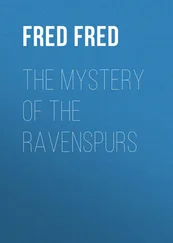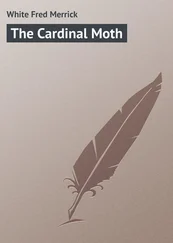Ford Ford - The Young Lovell
Здесь есть возможность читать онлайн «Ford Ford - The Young Lovell» — ознакомительный отрывок электронной книги совершенно бесплатно, а после прочтения отрывка купить полную версию. В некоторых случаях можно слушать аудио, скачать через торрент в формате fb2 и присутствует краткое содержание. Жанр: foreign_antique, foreign_prose, Историческая проза, на английском языке. Описание произведения, (предисловие) а так же отзывы посетителей доступны на портале библиотеки ЛибКат.
- Название:The Young Lovell
- Автор:
- Жанр:
- Год:неизвестен
- ISBN:нет данных
- Рейтинг книги:3 / 5. Голосов: 1
-
Избранное:Добавить в избранное
- Отзывы:
-
Ваша оценка:
- 60
- 1
- 2
- 3
- 4
- 5
The Young Lovell: краткое содержание, описание и аннотация
Предлагаем к чтению аннотацию, описание, краткое содержание или предисловие (зависит от того, что написал сам автор книги «The Young Lovell»). Если вы не нашли необходимую информацию о книге — напишите в комментариях, мы постараемся отыскать её.
The Young Lovell — читать онлайн ознакомительный отрывок
Ниже представлен текст книги, разбитый по страницам. Система сохранения места последней прочитанной страницы, позволяет с удобством читать онлайн бесплатно книгу «The Young Lovell», без необходимости каждый раз заново искать на чём Вы остановились. Поставьте закладку, и сможете в любой момент перейти на страницу, на которой закончили чтение.
Интервал:
Закладка:
And it had worked better for them than they had expected, so that now they held the Castle, and the law might be very hard set, if it ever made the essay, to get them out of it.
For, as Elizabeth Campstones presently told him, they had taken all the charters and the deeds of the Castle to Haltwhistle, where the one knight had them hidden up, and all the deeds and charters of his mother's lands and houses to Cullerford, where the other kept them. The Castle itself they held all three, the Decies and the two knights – or rather their two ladies – being captains there by turns of three days each, and dividing the revenues of it very fairly.
They had cast out all the men-at-arms that were any way faithful to the Young Lovell, taking away their arms too. For they, with their armed men, had been in possession of the Castle and had taken the keys of the armoury, whilst the Lovell men were without arms and leaderless. So that some of the Lovell men had become bedesmen at the monastery at Belford, and many perished miserably about the country in the great storm of the second day of April, whilst some had taken to robbery, which was all that was left them. Those in the Castle had hired men from the false Scots and other ragged companions of the Vesty that was Sir Symonde's brother, and there they all dwelt comfortable, having between them about three hundred men-at-arms and a numerous army of bowmen, but no cannon. They deemed that they could well await any assault of the Young Lovell if he should return. They considered that he had been slain by the outlaw Elliotts, who had been seen to ride by, three miles north of the Castle, going up into the Cheviots.
But all these things happened only after they had settled with the Lady Margaret in that little room. And that had happened in this way, Elizabeth Campstones said:
After the lawyer told her the tale about the fair witches she had broken into no cries and oaths as he had expected; not even when he had particularised one witch with red hair and great breasts that danced and sprang all naked over a broomstick, with her hair tossing, and how the Young Lovell had singled this witch out for favours apart. The Lady Margaret said only —
"And so you two and the Decies…"
"We stood there weeping and lamenting," the lawyer said.
"I marvel that not one of you had heart to adventure for the caresses of such fair women as you have told me of. Had ye been men ye would."
The lawyer answered with an accent of horror:
"But witches and warlocks!"
"Ah, I had forgotten," the lady said. "So ye wept and turned your heads away. And afterwards?"
"After they were gone," Magister Stone answered, "we fell to devising how we might rescue you, ah gentle lady, from that lost knight and himself from himself." That was to be in this way: The Decies should seek to possess himself of the lands, knighthood and name of the Young Lovell, and, if he did this with the irrevocable blessing of the Lord Bishop, the act of the Border Warden, who in those parts stood for the King, as well as in presence of his father, he might establish a very good title whether of presumption or possession. And if in the same way he might be betrothed to the Lady Margaret in the presence of the Lady Rohtraut to whom she was ward and with the formal rite of the Church, which like the other is irrevocable, the Young Decies would be in a very fair way to achieve his pious desires.
"And that should be as how?" the Lady Margaret asked.
He desired, the lawyer said, to hold the Young Lovell's heritage only as a faithful steward and brother and, so holding it with a very arguable title, neither Prince Bishop or King could extort from it any very great fines or amercements. Meanwhile the Decies should consummate that very night his wedding with the Lady Margaret whom, after the betrothal, he alone could marry. And they had a good priest there present and himself ready to draw up marriage charters enough to fill two bridal chests. And, the more to incline her to this, it was the mind of the gallant Decies to allow her such marriage lots, dowers and jointures, out of the heritage of the Young Lovell as together with her own lands of Glororem and the other places, and by inducing the Lady Rohtraut to forego the great fine that they should pay her upon her marriage, would leave them one of the richest married pairs of that part of the King's realms.
And when the Lady Margaret asked how that should be brought about, and the particulars, feudal and direct, of the deeds he would make, he went off into a great flood of Latin and Norman words of the law. At last she said:
"I make out nothing of all this talk. But I think I will not marry with a great toad that hath a weasel gnawing at his vitals."
"Ah, gentle lady…" the lawyer began, and his voice rose in its tones.
"To put it shortly," the lady continued, "the great toad is the gallant Decies, for toads do shelter under other men's rocks and stones, and this gallant – for I will not rob him of the title you give him, and I know no other by which to call him – is minded to shelter under the stones and rocks of my cousin's Castle that in God's good time shall be my cousin's and mine. And for who the weasel is that gnaweth at the vitals of the gallant Decies I will not further particularise, since I might well go beyond courtesy. So now get you gone, or I will wave one of the clouts from this little window which, by the light of the burning houses, my cousins the Eures and the Widdringtons and the Percy shall perceive from where they wait upon Budle Crags, and very soon you shall be hanging from the White Tower to affright the morning sun. And that I promise you…"
The lawyer protested in various tones, rising to a sick squeak, but she said no more to him. It was not true what she said, that her cousins were waiting to fall upon the Castle, though they would well have done it on the next morning or in two days' time. But the lawyer did not know that it was not true and so he shivered and went away.
A little later there came Henry Vesey of Wall Houses, the evil knight that was brother to Sir Symonde. He had a red nose, a roving eye and staggered a little. He affected a great gravity, but she laughed at him. His cloak was monstrous and of green, slit all down the great sleeves to show the little coat of purple damask. His shirt was wrought up into a frill very low down in his neck, so that it showed much of his chest, and in his stiff biretta of scarlet he had a jewel of scarlet that held five white feathers. His hair, which was reddish, fell almost to his shoulders, for he affected very much to be in the fashions of his time – more than most lordings and knights of that part. And, indeed, the Lady Margaret considered him a very proper, impudent gentleman.
"Cousin Meg!" he began, and then he stammered with the liquor that was in him. But he achieved again an owlish gravity and a sweet reason. His proposition was that, still, she should marry the Decies and that he himself would wed the Lady Rohtraut so that he could defend her interests the better. And so they could all live there comfortably together, for it was better to live in one great family than scattered here and there. The Lady Margaret was already laughing, but he continued with a great gravity, that, as for the Decies, he loved her so desperately he did not dare to come nigh her, but, now he had no need to conceal it, was rolling about the carpet in the great hall, bellowing with the pain of his passion.
"Well, I have been aware of it this many months," the lady said, "and it is a very comfortable love that will not let him come nigh me. I pray it may continue."
At that Vesey of Wall Houses fell to laughing.
He tried to explain that he had come to her with the idea that she might be more apt to wed the Decies if she knew that, by his wedding the Lady Rohtraut, the Castle should have for its head and guidance, such a sober, answerable, prudent and valorous head as himself.
Читать дальшеИнтервал:
Закладка:
Похожие книги на «The Young Lovell»
Представляем Вашему вниманию похожие книги на «The Young Lovell» списком для выбора. Мы отобрали схожую по названию и смыслу литературу в надежде предоставить читателям больше вариантов отыскать новые, интересные, ещё непрочитанные произведения.
Обсуждение, отзывы о книге «The Young Lovell» и просто собственные мнения читателей. Оставьте ваши комментарии, напишите, что Вы думаете о произведении, его смысле или главных героях. Укажите что конкретно понравилось, а что нет, и почему Вы так считаете.












